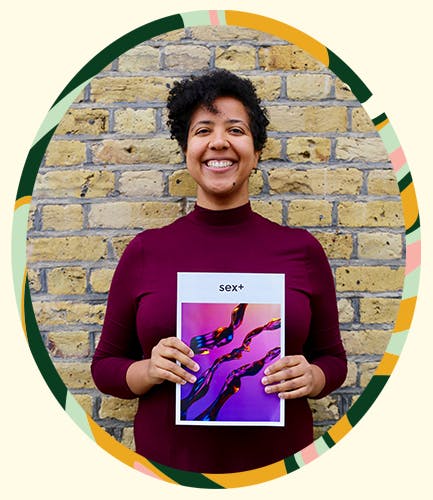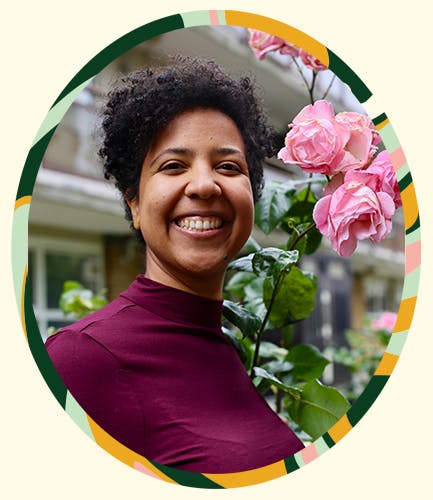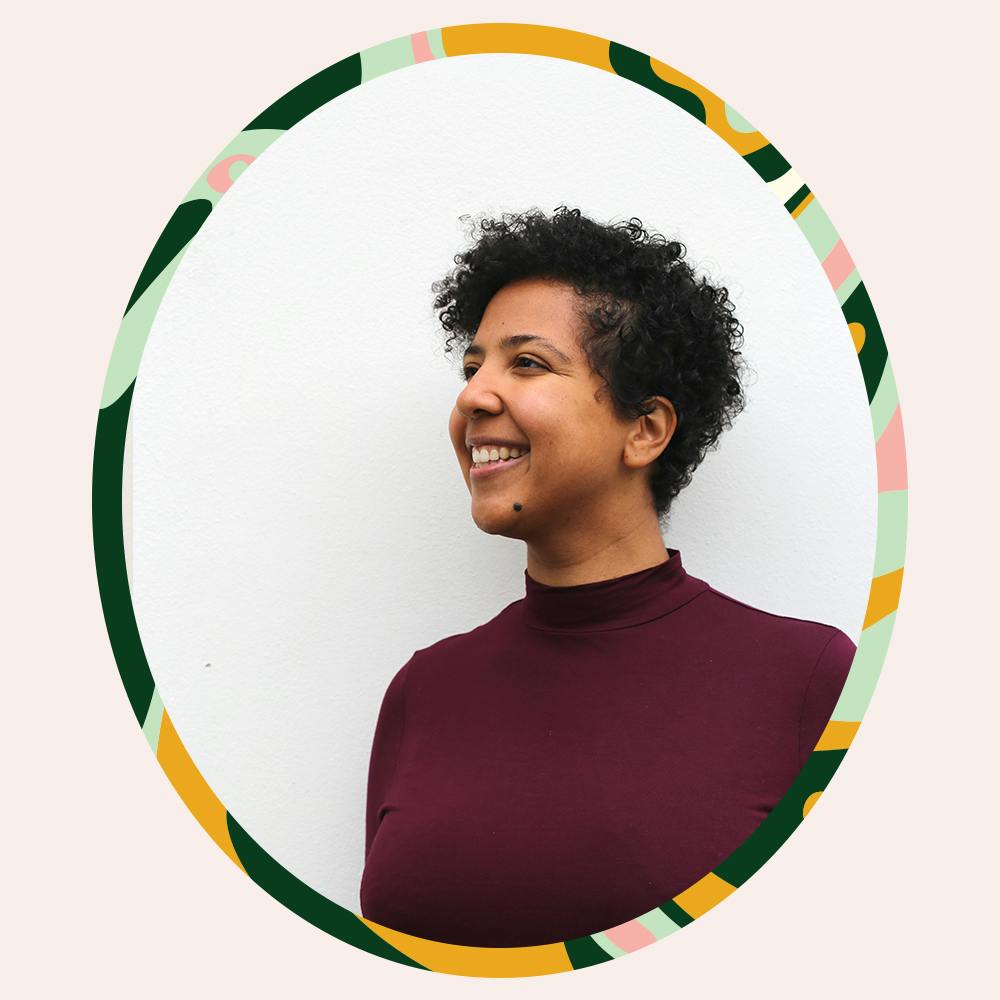At Daye we believe health should be on your terms, and part of that is understanding and advocating for what you like sexually—and that doesn’t necessarily mean counting orgasms. Kim Loliya, co-founder of The Pleasure Institute, works with people who feel disconnected from sex and think something is "wrong" with them.
What Loliya does—helping women understand and express their desires—is the side of sex education that gets left out of the curriculum.
The Pleasure Institute centres on the premise that everybody has a right to pleasure, a notion that has particular weight for women, who are often taught to suppress their sexuality from a young age. In her teens, Loliya discovered through masturbation that any attempts at penetration were intensely painful, making tampons impossible to use. It took 10 years to receive a vaginismus diagnosis, but she gradually worked through the pain by exploring different practices and connecting to other women around her.
What she discovered was an entire sex positive movement which embraced inclusivity. Sex positivity doesn’t mean just liking sex, and it definitely doesn’t mean assuming other people like sex. She even started sex+, a magazine dedicated to the sex positive movement. Through a combination of the magazine and her work at The Pleasure Institute in South London, Loliya has made it her mission to nurture and support that spectrum.
Pleasure, as Loliya notes, often falls by the wayside in modern life. The pressures of spinning multiple plates at work, at home and in social settings leave many of us feeling burned out. And then what do we do? We spin even harder. We sat down with Loliya to find out how sex can be a litmus test to check on how we’re doing, an indicator of when we need to take a moment to redress balance.

Can you talk us through what your work at The Pleasure Institute entails?
I work as a coach and educator specialising in sex and relationships. I mostly work with women and couples to help them find more pleasure in and out of the bedroom. This includes having better sex, intimacy and connection and unlearning the patterns that contribute to feeling shut down and disconnected from our bodies and desires. Getting into this work was a very gradual process, I definitely didn’t dream of being a sex educator when I was growing up! It started with organising a book club where we read titles about sexuality and that developed into running workshops from home. I then started to get hosted by others to run workshops and talks in the UK and abroad and eventually, after getting training in various education and coaching modalities, I opened our clinic and started seeing clients one-to-one.
What are some of the main reasons that people come to visit your clinic?
People usually come and see me because they think something has “gone wrong”, for example, they’re experiencing painful sex, they cry after orgasm, they feel numb during sex, they have no idea what they like in bed or they’ve stopped having sex altogether and don’t know how to reintroduce intimacy into their relationship. On a more subtle level, what people are actually looking for when they come to see me is permission to be themselves, to ask for what they want, to understand how to stay in consent, to get more empowered and feel more alive.
When you first experienced the pain of vaginismus, did you know what it was? How have you worked through that?
I had no idea what vaginismus was when I first experienced pain and it took over a decade to actually get a diagnosis. Back then, there was very little information online and no one was speaking out about it in terms that were even remotely relatable. I remember thinking “it’s unlikely I’m the only one”, yet still felt completely ashamed and isolated. I worked through it by trying lots of different things, including finding my voice during sex, exploring various conscious sexuality practices, connecting to other women with similar issues, and seeing various sexuality practitioners.

What was your sex education like at school? What do you think all young children should be taught?
My sex education focused on contraception, STI-prevention and understanding the menstrual cycle, so it was severely lacking. Young children should be taught in age appropriate language about bodily autonomy, how to stay in consent, that they have a right to feel good in their body and that they should seek out experiences where they feel safe and happy. They should also be taught the warning signs when something doesn’t feel good and what to do about that. This would build a solid foundation of consent where healthy sexuality can flourish.
If you are happy with us asking, how has vaginismus impacted your relationship with your period and menstrual care? Have you been able to use tampons, for example?
My periods started age 10 and they have always been incredibly heavy, unfortunately. On lighter days of my cycle I have gone through phases of using tampons, but for many years it was impossible because the penetrative aspect was too painful for me and it put me off. I was worried about the quality of tampons, the toxicity and general unpleasantness of the cheap materials that are used to produce them.
There are a lot of conversations around closing the pleasure gap between women and men when it comes to sex. How is pleasure central to the mission of your clinic?
The orgasm gap is a very real assessment of the sex lives of many couples and finally we have research that proves this phenomenon exists. My clinic starts with the premise that everyone has a right to pleasure, particularly those who might feel less entitled to it such as women who are often taught to suppress their sexuality from a young age. Pleasure isn’t just about having an orgasm, it’s about enjoying the body for everything it can offer us and managing the negative effects of stress that impact both sexuality and general wellbeing.
“
Everyone has a right to pleasure, particularly those who might feel less entitled to it.
Do you see a correlation between the pressures of modern life and the disconnect many women feel with their bodies?
The pressures of modern life create a lot of disconnection for women. Excessive scrolling, exhaustion, anxiety and negative self-talk have a toxic impact on the body and mind. We fall into the trap of thinking that if we can just do better and keep all the plates spinning everything will be okay and we compare ourselves to others who always seem to cope better. This leads to more exhaustion and burnout where our relationships get eroded and we lose the most crucial relationship of all—the one we have with ourselves.
You also run a sex positive magazine—what does sex positive mean and what are the different communities that exist within that?
Sex positive means having or promoting an open, tolerant, or progressive attitude towards sex and sexuality. Put simply, it means not shaming others and celebrating the spectrum of sexuality, which includes asexuality as well. There are many communities that fall under the definition of sex positive including BDSM, Tantra, sex parties/hedonists, polyamory/ethical non-monogamy, sex positive workshops/festivals and events where you can just turn up and listen such as talks and panel debates. There really is something for everyone! You become sex positive if you want to be, it’s as simple as that and we’re all on a journey of unlearning shame and becoming more sex positive...no one is perfect.
“
Sex positive means promoting an open, tolerant attitude towards sex and sexuality.
We see health as having 3 pillars—physical, mental, soulful. Would you argue that sex should also be part of wellbeing, and which pillar(s) would it touch?
I think sex touches all pillars very deeply and it’s a great temperature check on how we’re doing in our lives. If our bodies are not functioning properly, if our minds are full of negative thoughts or if our soul is weighed down and our light feels diminished the kind of sex that we experience will also be impacted and there will be clear signs that things need some work. Once you know, it’s great because you can take gentle, safe steps in the general direction of healing and feeling better every day.






